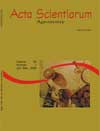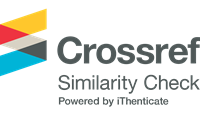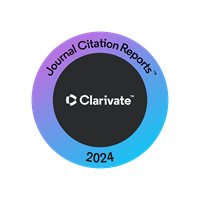Economic viability of supplementary irrigation in sugar cane plantations, <em>Saccharum</em> spp., of northern state of São Paulo
Abstract
Full plant capacity of sugar mills and alcohol distilleries of the northern region of the state of São Paulo, Brazil, is achieved by renting land from farmers far from the industrial plants and frequently with low soil fertility. Techniques that increase land productivity may lower the requirement for renting of these marginal areas and supplementary irrigation is one of the available alternatives. Research evaluates the worthiness of supplementary irrigation of sugar cane, Saccharum spp. (Poaceae), in the region. Dendrograms, an instrument of decision analysis, were used to evaluate the expected values of different alternatives faced by the decision maker. Results show that supplementary irrigation of sugar cane increases expected net return per hectare of cropped land. Expected net returns were higher when indirect benefits (lower costs in land rent, planting, cultivating and transport) were also taken into accountDownloads
Download data is not yet available.
Published
2008-05-09
How to Cite
Frizzone, J. A., Matioli, C. S., Rezende, R., & Andrade Gonçalves, A. C. (2008). Economic viability of supplementary irrigation in sugar cane plantations, <em>Saccharum</em> spp., of northern state of São Paulo. Acta Scientiarum. Agronomy, 23, 1131-1137. https://doi.org/10.4025/actasciagron.v23i0.2569
Issue
Section
Agronomy
DECLARATION OF ORIGINALITY AND COPYRIGHTS
I Declare that current article is original and has not been submitted for publication, in part or in whole, to any other national or international journal.
The copyrights belong exclusively to the authors. Published content is licensed under Creative Commons Attribution 4.0 (CC BY 4.0) guidelines, which allows sharing (copy and distribution of the material in any medium or format) and adaptation (remix, transform, and build upon the material) for any purpose, even commercially, under the terms of attribution.
2.0
2019CiteScore
60th percentile
Powered by 

2.0
2019CiteScore
60th percentile
Powered by 



















































